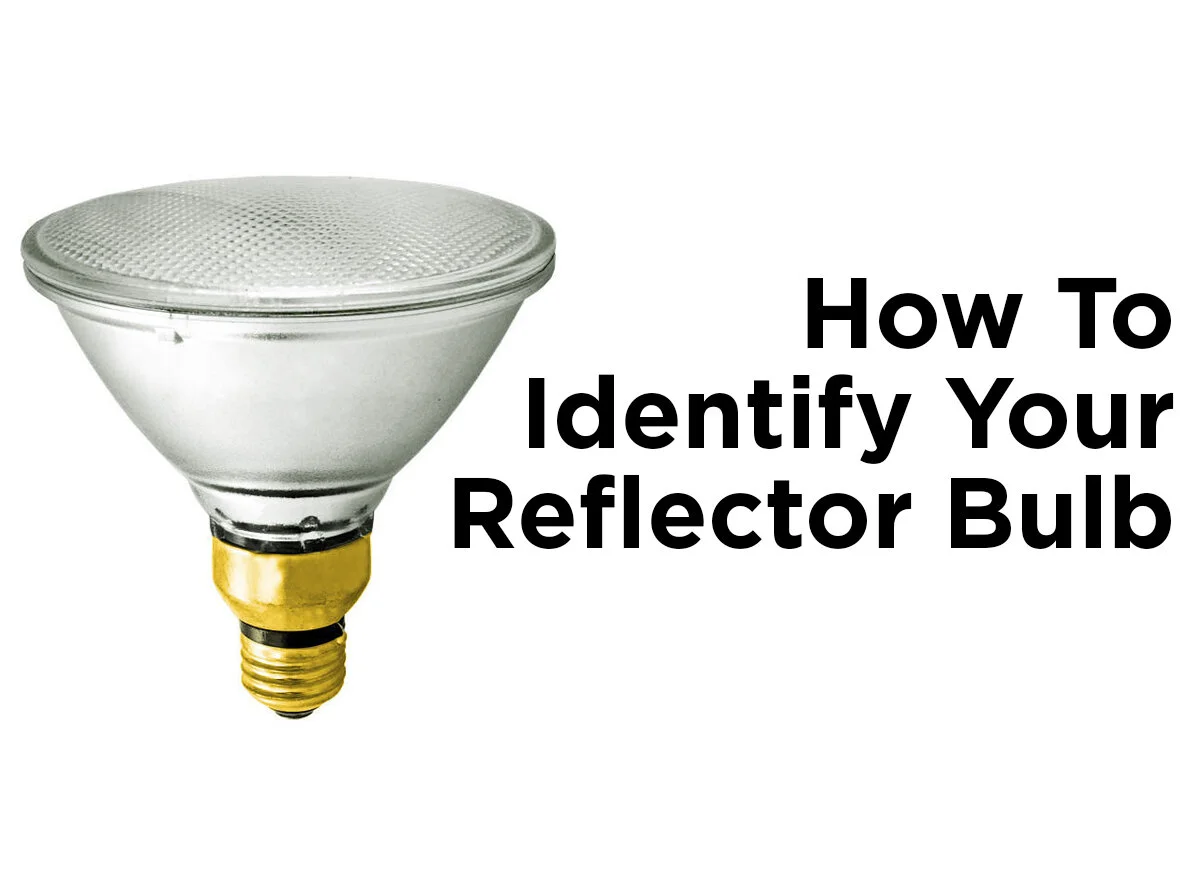What Bulb Do I Need?
Ever had a bulb burn out but didn’t know what type it was, much less where to find another just like it? Not only do we carry every bulb under the sun, but we’ll turn you into a lighting expert in no time. Below are the names and descriptions of some pretty common bulbs. Any of these ring a bell?
Toshiba PAR38FLWW LED PAR38
PAR: PAR lamps, or parabolic aluminized reflectors, generally have a flat face and come in many sizes, from PAR16 all the way to PAR64. The numbers behind the ‘PAR’ (this rule applies to all light bulbs) stand for the diameter of the bulb measured in increments of 1/8 of an inch. For example, a PAR16 means the bulb is 16 eighths of an inch in diameter, which works out to two inches in diameter. A PAR38 (pictured on the right) on the other hand, would be a little more than four inches in diameter, 4 ¾ inches, to be exact. PAR lamps are found in a number of applications, from outdoor lights above your garage to track lights in your favorite museum.
Philips 24876-5 65-Watt BR30
R/BR: These two lamps are very similar to each other in terms of shape and application. The ‘R’ stands for ‘reflector’, while the ‘BR’ stands for ‘bulged reflector.’ Look at the picture on the left. Notice how the bulb bulges a little bit just above the neck? Now look at an R bulb. You’ll notice the neck is smooth, and both bulbs have a smooth, frosted face, evenly dispersing the light. These bulbs are typically used for creating warm, soft, even dispersions of light in recessed cans in living rooms and restaurants, but are also used for wall washing and in track lights.
Ushio Ultraline Titan 1003557 35-Watt MR16
MR: The MR bulbs, or "mirrored reflector" (also called "multifaceted reflectors" or "mini reflectors") are very similar to the PAR and R-type bulbs in terms of lighting applications. And just like the PAR and R lamps, these bulbs come in different sizes, from an MR8 all the way to an MR16, and some come with a glass face, a frosted face, or even with no face. These bulbs get their names from the tiny mirrors located inside the face of some bulbs that disperses the light (pictured at left), while others have a smooth face, giving you a controlled beam of light. Look for MR bulbs in track lights in homes and department stores, in jewelry or display cases, or in museums highlighting a particular piece.
Antique Light Bulb Co. L4085 12.5-Watt Candelabra Base
Candelabra Base: Candelabra base bulbs come in many shapes and sizes, from bent tip, to torpedo shape, even vintage antique bulbs. These bulbs can either be frosted or clear, and don’t put out too much light because the small base size limits the maximum wattage. This is why candelabra base bulbs are perfect for decorative chandeliers in your entryway, wall sconces in hotel hall ways, even in your porch light fixture, just as long as the fixture is sealed.
LEDshine360 360-6W-CW 6-Watt LED A19
A19: This is your standard household bulb and is the easiest bulb to recognize. In fact, when someone says “light bulb”, this bulb shape probably comes to mind. A19 bulbs are measured the same way as the other types. Instead of measuring the diameter of the bulb, like PAR lamps, the bulb’s face is measured at its widest point. So an A19 bulb is 19 eighths of an inch, or 2 3/8 inches at its widest point. A19 bulbs are extremely common bulbs and are used in many applications, from reading lamps, to ceiling fans, and to just about anything you can think of.
Which of these bulbs do you use? Tell us on Facebook or Twitter!













